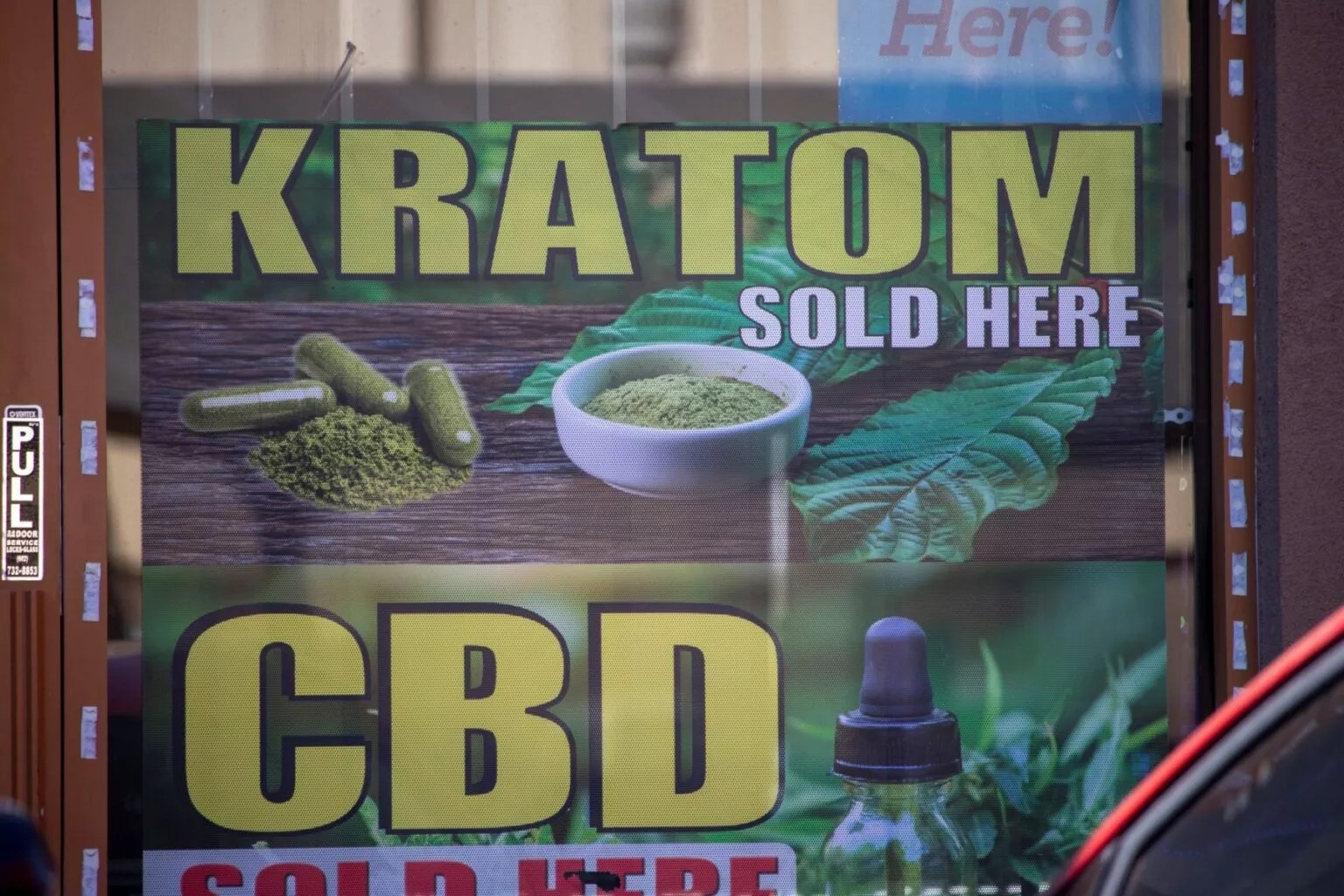
Jerod MacDonald-Evoy/Arizona Mirror

Audio By Carbonatix
A kratom retailer selling products in Arizona is calling for stricter regulations on an opioid-like synthetically altered kratom product called 7-hydroxymitragyine, or 7-OH for short.
At local smoke shops, you can buy 7-OH as a tablet, extract or vape. Yet in the view of Ryan Niddle, the CEO of Utah-based kratom retailer MIT45, the product presents a potential danger to users, especially those who may be using kratom as an alternative to opioids. He is calling on the Food and Drug Administration and states to redefine 7-OH as a pharmaceutical and to pull it from shelves until it can pass muster as a prescription drug.
“7-OH is not kratom. And kratom is not 7-OH,” Niddle said. “If a customer walks into a store and is told that that is kratom, it is just not. It’s a very small part of the kratom leaf. We need to watch out for the novice consumer.”
Niddle says 7-OH consumers are 10 to 30 times more likely to abuse this form of kratom compared to non-7-OH kratom products. The chemical components in 7-OH may produce opioid-like effects, with symptoms such as nausea and vomiting, constipation, dependence and withdrawal, sedation and respiratory depression that may lead to death, the FDA has warned.
Kratom retailers, including MIT45, have faced lawsuits over undisclosed addiction risk, or even death. In July 2024, Arizona resident Cullen Logan filed a wrongful death civil suit against Viable Solutions and other kratom retailers after his wife, Jennifer Pinney, died after developing a kratom dependence. In March 2024, two California men sued MIT45, claiming they became unwillingly addicted to the company’s products because the packaging didn’t warn them about the risks of substance dependence.
In 2023, 7-OH products emerged on the market as an alleged premium kratom product, C. Michael White, a professor of pharmacy practice at the University of Connecticut, told Phoenix New Times in August. Most kratom is marketed as an anxiety reliever, energy booster or opioid alternative. By contrast, 7-OH’s effects are “a lot like morphine or a traditional opioid,” White said.
After consuming 7-OH, users may experience “a euphoric effect that was very much like when they took their original opioids,” White said. That runs “the risk of reactivating people’s opioid addictions.”
Kratom resides in a gray zone of federal regulations. The FDA labels it as a “new food ingredient” and “drug of concern.” States, mainly, have taken on the responsibility of regulating the plant product.
In Arizona, then-Gov. Doug Ducey signed the Arizona Kratom Consumer Protection Act into law in 2019. It provided guidance on how kratom is sold and banned high-potency kratom outright. Specifically, it prohibits any kratom products from having a 7-OH level higher than 2%.
Despite the law on the books, products with higher 7-OH remain staples in Arizona’s kratom market.
Generally, 7-OH products are marketed under the same definition as traditional kratom. But less than 1% of natural kratom is in 7-OH, with the majority artificially synthesized, White said.
That combination – a low amount of natural kratom in a mainly synthesized product – leads Niddle to argue that 7-OH should be regulated as a pharmaceutical.
“Seven hydroxy might have a place in the world. It’d be an incredible pharmaceutical derivative that might be an incredible opioid alternative – to be prescribed,” Niddle said. “I don’t think it should be able to be sold at a gas station or smoke shop where a novice user with no experience can walk in and buy the product. It’s unsafe for the population at large.”
Niddle views Kratom and 7-OH as analogous to CBD and Delta-8 and Delta-9 products. Kratom and CBD are the more plant-based products, while their Delta and 7-OH offshoots can be more intoxicating, he explained. He also suggested a “registration fee” of “small excise tax” for kratom producers to support the enforcement of 7-OH products.
To Niddle, a 7-OH crackdown won’t only ensure that kratom customers have a safer, more enjoyable experience, but will also benefit the industry in the long run.
MIT45 spends 5% of its annual revenue toward university-based independent kratom research.
“If the industry is gonna have longevity to it,” he said, “let’s make certain we know a lot more than we know now.”